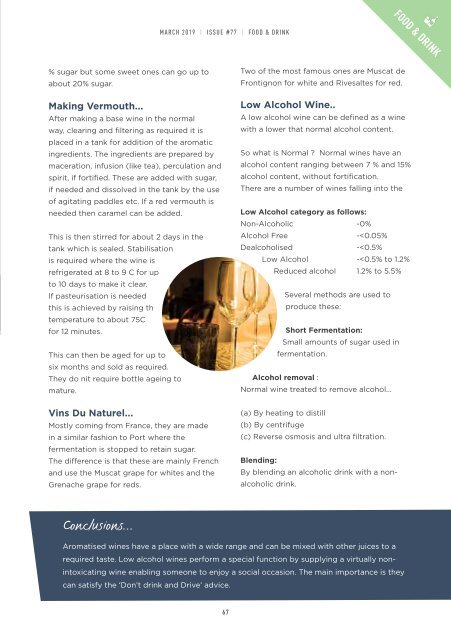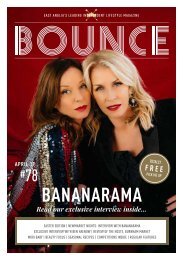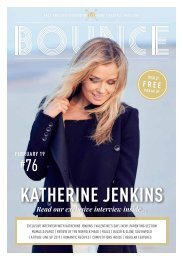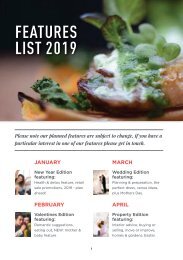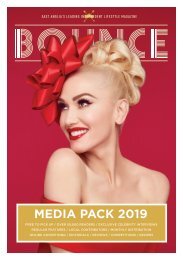Bounce Magazine 77
In this spring edition we feature the internet sensation dodie, we review The Swan House in Beccles, don't miss our Mother's Day Gift Guide, we also have two amazing competitions to win tickets to The Wailers and Brand New Heavies. We review the GlassVAC share our top gardening products, plus we have our top Bounce loves baby clothes and accessories. We also feature weddings, health and wellbeing, business, music and entertainment, fashion, sports and much more!
In this spring edition we feature the internet sensation dodie, we review The Swan House in Beccles, don't miss our Mother's Day Gift Guide, we also have two amazing competitions to win tickets to The Wailers and Brand New Heavies. We review the GlassVAC share our top gardening products, plus we have our top Bounce loves baby clothes and accessories. We also feature weddings, health and wellbeing, business, music and entertainment, fashion, sports and much more!
Create successful ePaper yourself
Turn your PDF publications into a flip-book with our unique Google optimized e-Paper software.
FOOD & DRINK<br />
MARCH 2019 MARCH | ISSUE 2019 #<strong>77</strong> | ISSUE | FOOD #<strong>77</strong> & DRINK<br />
% sugar but some sweet ones can go up to<br />
about 20% sugar.<br />
Making Vermouth...<br />
After making a base wine in the normal<br />
way, clearing and filtering as required it is<br />
placed in a tank for addition of the aromatic<br />
ingredients. The ingredients are prepared by<br />
maceration, infusion (like tea), perculation and<br />
spirit, if fortified. These are added with sugar,<br />
if needed and dissolved in the tank by the use<br />
of agitating paddles etc. If a red vermouth is<br />
needed then caramel can be added.<br />
This is then stirred for about 2 days in the<br />
tank which is sealed. Stabilisation<br />
is required where the wine is<br />
refrigerated at 8 to 9 C for up<br />
to 10 days to make it clear.<br />
If pasteurisation is needed<br />
this is achieved by raising th<br />
temperature to about 75C<br />
for 12 minutes.<br />
This can then be aged for up to<br />
six months and sold as required.<br />
They do nit require bottle ageing to<br />
mature.<br />
Vins Du Naturel...<br />
Mostly coming from France, they are made<br />
in a similar fashion to Port where the<br />
fermentation is stopped to retain sugar.<br />
The difference is that these are mainly French<br />
and use the Muscat grape for whites and the<br />
Grenache grape for reds.<br />
Two of the most famous ones are Muscat de<br />
Frontignon for white and Rivesaltes for red.<br />
Low Alcohol Wine..<br />
A low alcohol wine can be defined as a wine<br />
with a lower that normal alcohol content.<br />
So what is Normal ? Normal wines have an<br />
alcohol content ranging between 7 % and 15%<br />
alcohol content, without fortification.<br />
There are a number of wines falling into the<br />
Low Alcohol category as follows:<br />
Non-Alcoholic -0%<br />
Alcohol Free -


